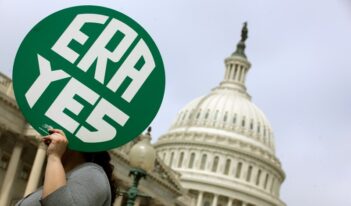
Prison Bureau proposal would expand surveillance of the most dangerous prisoners.
The Bureau of Prisons is seeking to expand surveillance on prisoners who pose a threat to society from behind bars.
The agency recently closed the comment period on a proposed rule that would establish guidelines for sending inmates to isolated incarceration units where federal officials would monitor nearly all prisoner communications and restrict communication with those outside the penitentiary. The regulation would target prisoners with terrorist links as well as those who have attempted to carry out illegal activities from prison, such as contacting victims or ordering murders.
The Bureau stated that the new rule is “necessary to ensure the safety, security, and orderly operation of correctional facilities, and protect the public.”
The Prison Bureau hopes the new rule will assist officials in combating the criminal activities of these high-risk prisoners by making communications easier to monitor. Two of these units, known as Communication Management Units (CMUs), already exist in Illinois and Indiana. An antiterrorism task force monitors all prisoner communications in the units, from chatter in the cellblock to conversations in the prison yard and religious worship. The rule would officially codify these ongoing practices and make it easier for officials to open additional units.
In order to monitor all prisoner communications effectively, the new rule would also restrict inmates’ communication with those outside of the CMUs. Inmates would be limited to using three pieces of paper for written correspondence per week, one fifteen-minute telephone call every month, and a single visitor for one hour each month. These restrictions would not include a limit on correspondence with a prisoner’s attorney or other federal officials, such as a member of Congress or the United States Attorneys’ Office.
According to the agency, “[r]educing the volume of communications will help ensure the Bureau’s ability to provide heightened scrutiny in reviewing communications…increasing both internal security within the correctional facilities, and the security of members of the public.”
The agency also asserted that the new regulations would provide greater protection for inmates. While those not held in the CMUs are subject to less stringent surveillance, recordings are often incomplete and potentially used out of context. Total monitoring in a CMU would create a more accurate record, one less susceptible to misinterpretation.
Although two CMUs already exist and over 700 comments were received during the first open comment period, the Prison Bureau has delayed adopting a final rule because the Bureau was tied up in litigation contesting the policies and conditions at the CMUs. The legal claims against the Bureau have now been dismissed, except for pending allegations of retaliation and procedural unfairness related to the process of how the Bureau assigns prisoners to the CMUs.
The Center for Constitutional Rights, a non-profit legal aid organization that represented the prisoners in the CMU litigation, alleged “the proposed rule will continue to unjustifiably prevent CMU prisoners from maintaining relationships with their families, to the detriment of their mental and emotional health and their prospects for rehabilitation and successful reentry into free society…. Moreover, this cruel treatment will continue to serve no legitimate security need.”
The American Civil Liberties Union (ACLU) is also calling for the immediate closure of existing CMUs and a rejection of the proposed rule authorizing their existence. David Fathi, the Director the ACLU National Prison Project, said that “[t]hese units are an unprecedented attack on the constitutional rights of prisoners and those in the outside world who wish to communicate with them. There is no justification for forcing prisoners who have never been convicted of any crime of terrorism to serve their sentences in severely isolated housing units, especially since prison officials are already able to address any legitimate security concerns.”
Representative Ted Poe of Texas, however, believes the CMUs are necessary to protect the American public. At a congressional subcommittee hearing, Poe stated, “We have got some real bad guys in the federal prisons. And they do not like America. They want to do us harm…. [T]hey are converting folks to side with them. And radicalization…is a big concern, because…almost everybody gets out of a prison somewhere.” The CMUs, according to Poe, have the potential to calm the swell of radicalization by stopping inmates’ initial exposure to anti-American ideas.
Harley Lappin, former Director of the Bureau of Prisons and current Chief Corrections Officer of Corrections Corporation of America, agreed with Poe that the CMUs would protect against this type of radicalization by separating high-risk inmates that may instigate these conversions from the general prison population.
The proposed rule’s reopened comment period recently closed, with over 400 comments submitted in a fifteen-day period.



